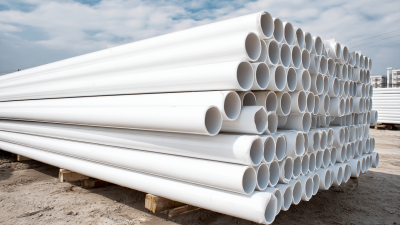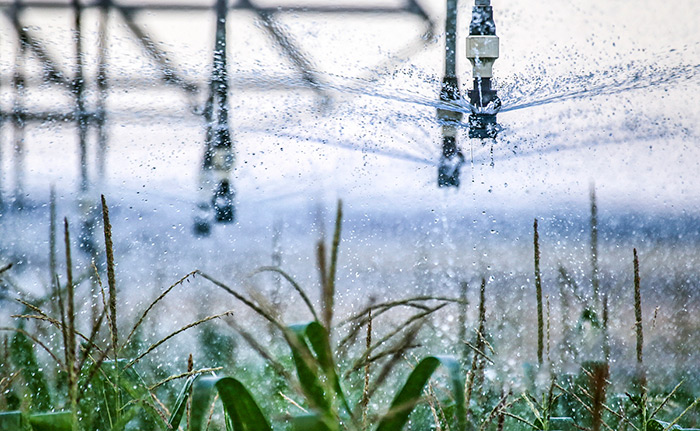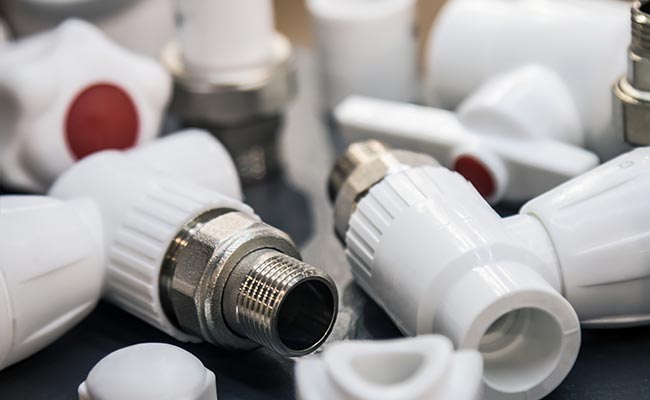2025 Top PCV Valve Fitting: Boost Your Engine Performance with Quality Components and Enhanced Fuel Efficiency
Table of Contents
- Top Features to Look for in PCV Valve Fittings for Optimal Performance
- Understanding How a Quality PCV Valve Enhances Fuel Efficiency
- Comparing Materials: Plastic vs. Metal PCV Valve Fittings
- Installation Tips for Maximizing the Benefits of Your PCV Valve
- Common Issues with PCV Valves and How to Avoid Them
- The Impact of PCV Valves on Engine Longevity and Maintenance
- FAQS
- Conclusion
- Related Posts
The automotive world is always evolving—pushing for new innovations and better performance. There are countless parts that play a role in making engines run smoother and more fuel-efficient. One of those key parts is the PCV valve fitting, which is pretty much essential when it comes to managing crankcase ventilation. As Jason Miller, CEO of Performance Automotive Components, puts it, “A good quality PCV valve fitting can really make a difference in how long your engine lasts and how well it performs. Honestly, if you're into performance cars, it’s kind of a no-brainer to have one.”

Now, as we take a closer look at the 2025 Top 10 PCV Valve Fittings, we’ll see how these parts are designed to improve airflow, cut down harmful emissions, and keep your engine running at its best. Thanks to new materials and tech, picking the right PCV valve fitting is more important than ever. Today’s options really blend quality with innovation, making sure your vehicle’s running efficiently.
Over the next sections, we’ll break down what makes each of these top contenders stand out—their features, benefits, and how they perform overall. We want to help both car buffs and everyday drivers understand why choosing the right PCV valve fitting matters. The goal? Help you make smarter choices, so your rides are smoother and you use less fuel.
Top Features to Look for in PCV Valve Fittings for Optimal Performance
When selecting PCV valve fittings, there are several key features that can significantly enhance your engine's performance and fuel efficiency. First and foremost, materials used in the construction of the valve fittings are crucial. High-quality components, often made from durable alloys or reinforced plastics, ensure resistance to wear and heat, providing a longer lifespan and improved reliability under various operating conditions. According to industry reports, using premium materials can result in a performance increase of up to 10% in some applications, as they minimize the chances of blockages and leaks that can hinder engine efficiency.
In addition to material quality, compatibility with your vehicle's specific engine design is paramount. Optimal PCV valve fittings should have a precise fit to prevent air leaks and ensure proper airflow within the crankcase ventilation system. Research indicates that mismatched fittings can cause a significant drop in performance, with fuel efficiency potentially declining by as much as 15%. Furthermore, features such as easy installation and maintenance also add value to your choice, as they enable quick replacements that keep your engine running smoothly without extensive downtime. Overall, selecting the right PCV valve fitting is essential for maximizing both performance and fuel economy in your vehicle.
2025 Top PCV Valve Fitting: Boost Your Engine Performance with Quality Components and Enhanced Fuel Efficiency
| Feature | Description | Impact on Performance | Material Quality |
|---|---|---|---|
| Durability | Made from high-quality materials to withstand engine conditions. | Increases lifespan and reliability of the engine. | Aluminum, stainless steel, or high-grade plastic. |
| Compatibility | Designed to fit a wide range of vehicle makes and models. | Ensures optimal functioning without modifications. | Precision-engineered for a perfect fit. |
| Ease of Installation | Comes with clear instructions and necessary hardware. | Saves time and labor costs during installation. | High-tolerance design for quick setup. |
| Enhanced Flow Rate | Optimized internal pathways for improved airflow. | Boosts engine performance and fuel efficiency. | Engineered for minimal back pressure. |
| Temperature Resistance | Capable of withstanding high and low temperatures. | Ensures consistent performance under various conditions. | Thermal-rated materials used in construction. |
Understanding How a Quality PCV Valve Enhances Fuel Efficiency
A quality PCV (Positive Crankcase Ventilation) valve plays a crucial role in enhancing fuel efficiency by ensuring proper ventilation of the crankcase gases. According to a study from the Society of Automotive Engineers (SAE), a well-functioning PCV system can improve fuel efficiency by up to 5%, which can significantly impact both performance and long-term operational costs. By allowing the engine to breathe effectively, a quality PCV valve prevents the build-up of harmful gases, thus maintaining optimal engine function and reducing emissions.
When selecting a PCV valve, it is essential to consider components that meet or exceed OEM specifications. Components made from high-grade materials can withstand the rigors of engine operation, ensuring longevity and reliability. As a tip, always check for compatibility with your vehicle's make and model to maximize the benefits of the upgrade.
Another key aspect is routine maintenance. Regularly inspecting and replacing the PCV valve as needed can prevent issues related to oil sludge build-up and decrease fuel efficiency. A study highlighted by the American Automobile Association (AAA) indicates that neglected PCV systems can lead to a reduction in fuel economy by as much as 10%. Keeping your engine components, including the PCV valve, in top condition is vital for achieving the best performance and efficiency.

Comparing Materials: Plastic vs. Metal PCV Valve Fittings
When it comes to PCV (Positive Crankcase Ventilation) valve fittings, the choice of material can significantly impact engine performance and longevity.
 Plastic fittings are lightweight and resistant to corrosion, making them a popular choice for many car manufacturers. They tend to be more cost-effective, which can lower the overall production cost of vehicles. However, plastic can become brittle over time, especially when exposed to high temperatures and engine chemicals, potentially leading to failure under severe conditions.
Plastic fittings are lightweight and resistant to corrosion, making them a popular choice for many car manufacturers. They tend to be more cost-effective, which can lower the overall production cost of vehicles. However, plastic can become brittle over time, especially when exposed to high temperatures and engine chemicals, potentially leading to failure under severe conditions.
On the other hand, metal PCV valve fittings, typically made from aluminum or other alloys, offer superior durability and a longer lifespan. They handle high temperatures and pressure fluctuations better than their plastic counterparts, making them ideal for performance-focused engines. While they may come at a higher initial cost, metal fittings often provide better reliability and can enhance the overall performance of an engine by maintaining optimal pressure and ventilation, which is crucial for fuel efficiency and emissions control. Ultimately, the choice between plastic and metal fittings should consider the specific application and performance requirements of the vehicle.
Installation Tips for Maximizing the Benefits of Your PCV Valve
When it comes to enhancing engine performance and improving fuel efficiency, properly installing a PCV valve is crucial. Start by ensuring you have the right tools and a quality PCV valve compatible with your vehicle. Before installation, inspect the valve and surrounding hoses for any cracks or signs of wear. Removing the old valve may require a bit of patience, especially if it's been in place for a long time. Use penetrating oil to help loosen stubborn components.
Once the old valve is removed, clean the area thoroughly to prevent debris from entering the engine. During installation, ensure that the new PCV valve is fitted securely and that all hose connections are tight to prevent leaks. It's often beneficial to check for any vacuum leaks in the system after installation to maximize efficiency. Regularly inspecting the PCV valve will not only enhance engine performance but also contribute to long-term reliability, reducing the risk of costly repairs down the road.
Common Issues with PCV Valves and How to Avoid Them
The Positive Crankcase Ventilation (PCV) valve plays a vital role in maintaining engine performance by regulating the flow of gases from the engine's crankcase back into the intake manifold. However, several common issues can arise with PCV valves, leading to decreased engine efficiency and potential damage.
One prevalent problem is clogging, which can occur due to the accumulation of oil deposits and sludge. When the PCV valve becomes obstructed, it cannot properly vent crankcase gases, resulting in increased pressure and potential oil leaks.
Another significant issue is the wear and tear that can degrade the valve's functionality over time. A faulty PCV valve can create erratic engine performance, including rough idling, reduced acceleration, and increased emissions. To avoid these problems, regular maintenance is essential. Routine inspections can help identify signs of wear, while timely replacement of old or damaged valves ensures optimal engine performance. Investing in quality PCV components not only enhances the efficiency of your vehicle but also prolongs engine life, making it a crucial aspect of automotive care.
The Impact of PCV Valves on Engine Longevity and Maintenance
The Positive Crankcase Ventilation (PCV) valve plays a crucial role in maintaining engine longevity and reducing the need for frequent maintenance. By directing harmful gases produced during combustion back into the intake manifold, the PCV valve ensures that these gases are re-burned rather than released into the atmosphere. This process not only minimizes emissions but also helps prevent sludge buildup in the engine, a common issue that can lead to costly repairs.
Moreover, a well-functioning PCV valve contributes to better fuel efficiency. When the valve operates properly, it maintains optimal pressure within the crankcase, allowing the engine to perform more efficiently. This efficiency translates to improved engine performance and can lead to significant savings on fuel costs over time. Regularly checking and replacing the PCV valve, if necessary, is a simple yet effective way to enhance your engine's health and ensure it runs smoothly for years to come.
2025 PCV Valve Impact on Engine Performance and Efficiency
This chart illustrates the significant impact of quality PCV valves on engine performance, showcasing an improvement in efficiency, longevity, and reduced maintenance frequency when quality components are utilized.
FAQS
: PCV valve fittings should ideally be constructed from high-quality durable alloys or reinforced plastics to ensure resistance to wear and heat, which enhances lifespan and reliability.
Using premium PCV valve fittings can lead to a performance increase of up to 10% by minimizing blockages and leaks that hinder engine efficiency.
Compatibility with your vehicle's specific engine design is crucial, as mismatched fittings can cause air leaks and a significant drop in performance, potentially reducing fuel efficiency by up to 15%.
Ensure you have the right tools and a compatible quality PCV valve, inspect for any wear on the old valve and hoses, clean the area before installation, and ensure all hose connections are tight to prevent leaks.
After installation, check for vacuum leaks in the system, and regularly inspect the PCV valve to maintain engine performance and reliability.
A well-functioning PCV valve directs harmful gases back into the intake manifold for re-burning, which minimizes emissions and prevents sludge buildup, enhancing engine longevity.
When operating properly, the PCV valve maintains optimal pressure within the crankcase, allowing the engine to perform more efficiently and ultimately leading to fuel cost savings.
Regularly inspecting and replacing the PCV valve as needed is an effective way to enhance the health of your engine and ensure it runs smoothly for years.
Conclusion
The article "2025 Top PCV Valve Fitting: Boost Your Engine Performance with Quality Components and Enhanced Fuel Efficiency" emphasizes the importance of selecting the right PCV valve fitting to enhance vehicle performance and fuel efficiency. Key features to consider include material quality, which can significantly impact durability and efficiency, with a comparison between plastic and metal fittings outlined. Furthermore, the article offers valuable installation tips to maximize the benefits of your PCV valve, highlights common issues to watch for, and discusses how a high-quality PCV valve fitting contributes to engine longevity and reduced maintenance needs.
As a reputable supplier in this field, Ningbo Pntek Technology Co., Ltd. understands the critical role that quality components play in optimizing engine performance. With over a decade of exporting experience, we are committed to providing reliable plastic pipes, fittings, and valves that meet the highest standards, ensuring that your engine runs smoothly and efficiently.
Related Posts
-

Understanding the Essential Role of PCV Valve Fittings in Engine Performance and Emissions Control
-

Understanding the Importance of PCV Valve Fittings for Vehicle Maintenance
-
Understanding PCV Valve Fittings: Essential Insights for Optimal Engine Performance
-

7 Essential Tips for Sourcing Upvc Pipes: What Every Global Buyer Needs to Know
-

Unlocking Efficiency: The Role of PVC Angle Valves in Modern Fluid Control Systems
-

Exploring Market Trends for UPVC Ball Valve Machines at the 138th China Import and Export Fair 2025
Blog Tags:

Ethan
Application

Underground pipeline

Irrigation System

Water Supply System

